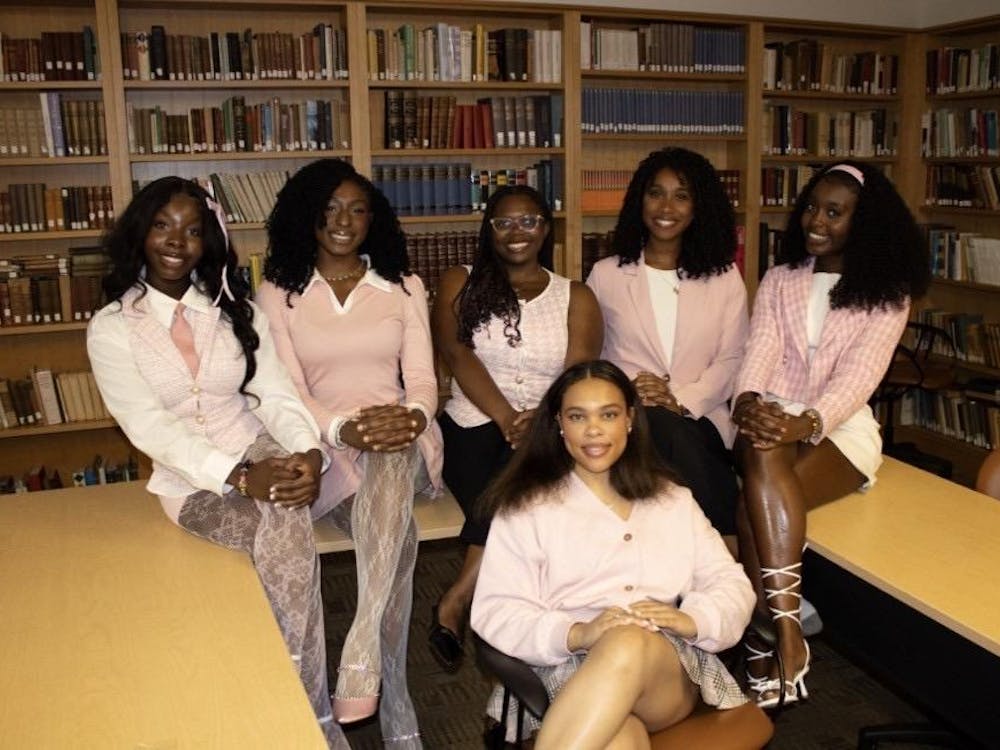It is always a challenge for high school graduates to come to college and adjust to a completely new environment with a completely new set of people. Although the University attempts to aid students with this transition, the process is significantly more difficult when those students come from outside of the United States.
That is where the Mentoring and International eXchange mentorship program comes in.
MIX is a program run by the University’s International Center that aims to acclimate the more than 150 international undergraduate students who arrive at the University each fall. Once students have attended the University for a semester, they may become mentors themselves.
“This is for all the international students,” MIX coordinator Freyan Soonawalla said. “We’ve recruited mentors from different nationalities ... [And] these mentors get assigned to mentees who have applied for the program.”
Soonawalla, who came to the University as an exchange student herself, said she benefited greatly from the program.
“Throughout their first year, with whatever questions they may have, the mentors are there for them,” she said.
The program’s participants also include native students seeking to develop relationships with international students. A second goal of MIX is to create “opportunities for international and American students at U.Va. to interact on a personal level and develop greater global and cultural awareness,” according to the University International Center’s Web site.
“A lot of the American students want to study abroad,” Soonawalla said. “So they join just to get that perspective and learn about the culture” before they travel to universities in other countries, many of which have programs that are similar to MIX.
One such program is Compañero PUCP at the Pontificia Universidad Católica del Peru. Like MIX, Compañero PUCP works with exchange students who visit the school from other countries.
“Compañero PUCP is sponsored by the Area of International Relations of Universidad Católica so Peruvian students can guide and offer advice to the international ones,” said Javier Bendezú, an active member of the program.
Bendezú, a full-time journalism student at Católica, served as a mentor for the program for several years.
“I have the chance to show U.Va. students how the life on campus is,” Bendezú said. “For example, how to choose classes and professors in the same way that I explain how the library system works. Also, I mention how the cafeteria system is and the procedure to be involved in some extracurricular activities.”
Bendezú also looks to makes friend with students from the University, taking his duty one step further than some.
“I have the role of an advisor but mostly I consider myself as a friend that the students can trust,” Bendezú said. “I do some things with U.Va. students during the time that they are not only studying in Catolica but also when they are living in Peru. I not only guide the U.Va. students in their life inside the campus but I also guide them outside it by solving doubts about how they have to manage themselves in this huge city [of Lima].”
Fourth-year College student Jess Batterton, who studied at Católica during her second year, said Bendezú “was the one who did make [the] effort.” Batterton, who spent spring 2007 in Peru, said she had a lot to get used to when she arrived in Lima.
“The actual feel of the campus is different [from the University] because it’s all enclosed,” Batteron said. “To get in you have to show a student ID. They don’t just let random people walk through the campus.”
Another difference between the Peruvian school and Grounds is that Católica’s campus contains architectural ruins and more small cafes as gathering places, compared to the University’s Lawn.
Like Batterton, fourth-year College student Leigh Rayfield experienced a culture shock. She said Católica was very different than the University. Rayfield spent six weeks in South America last summer and encountered Bendezú during her time in Lima.
“When I first met him, I was pretty surprised just because he knew so much our country,” Rayfield said. “He knew so much about our pop culture. I just didn’t expect someone to be so immersed in the American culture.”
For Bendezú, programs like Compañero PUCP involve reciprocal learning between mentor and mentee. The mentee learns about Peru and its culture, while he learns about the United States and the University, he said.
“I learned a lot of things about U.Va., thanks to [the students I worked with],” Bendezú said. “I had the chance to learn how life in Charlottesville is, how they live, what do people at U.Va. do during their free time and the main places all over campus.”






